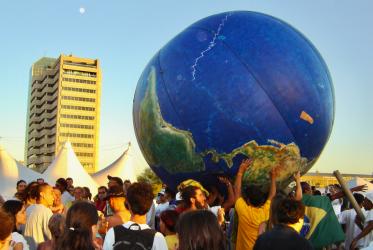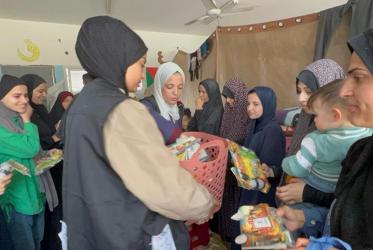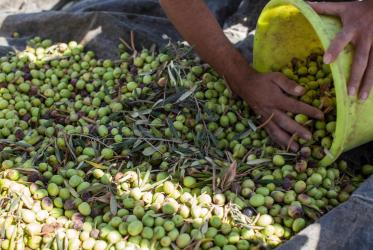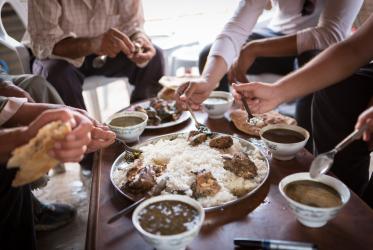Displaying 1 - 20 of 56
09 February 2024
Displaced people south of Gaza face extreme difficulty
21 December 2023
Lighting the lives of many
28 June 2022
Climate crisis fuels existing water injustice
27 October 2021
New WCC “Eco Ambassadors” pledge to protect our ecology
06 January 2020
Eco-School promotes blue communities, green churches
19 November 2019
WCC Eco-School begins in Thailand
07 November 2019















